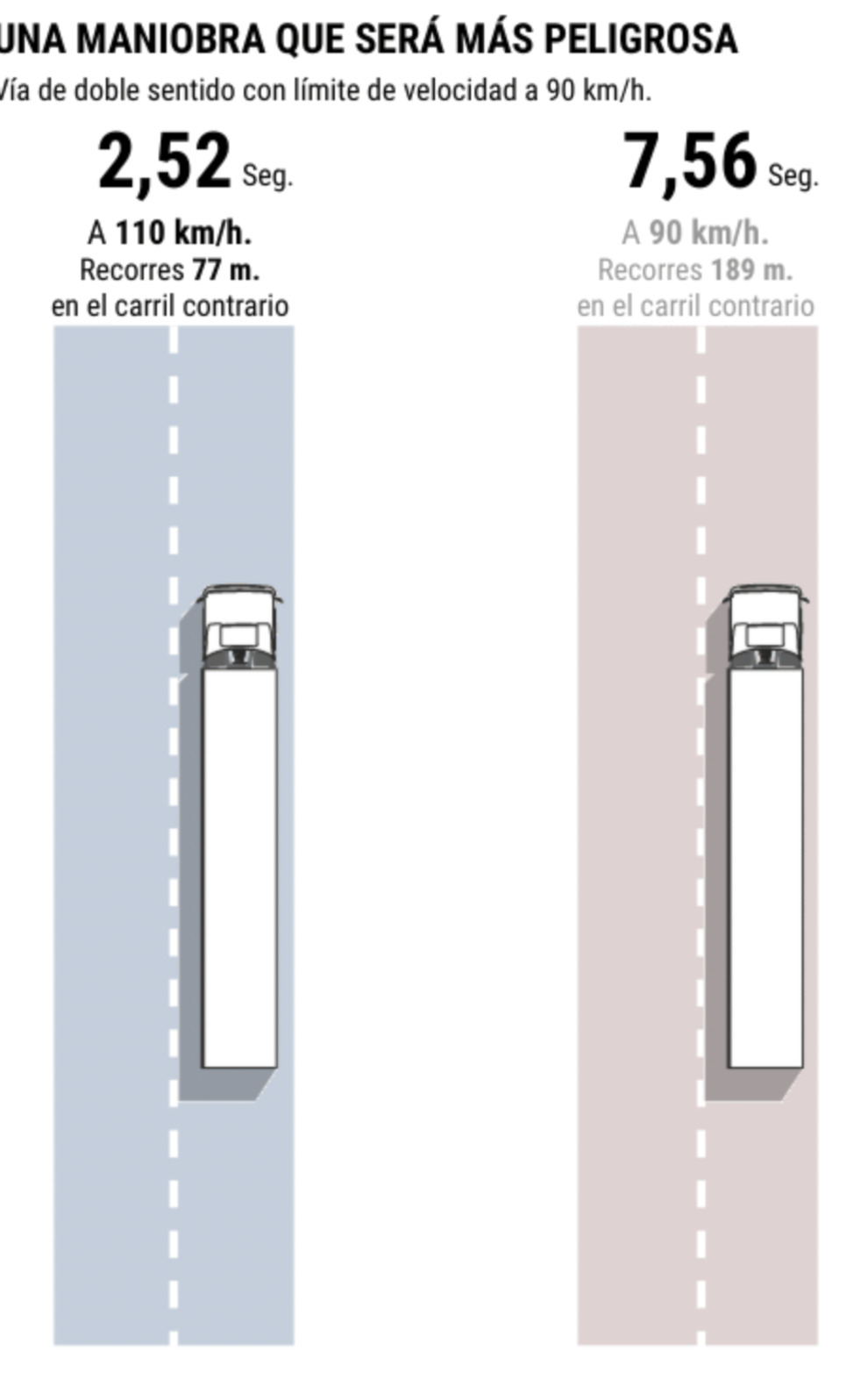Driving license 135 new DGT examiners
Traffic Law Goodbye to 20 km over the limit on two-way roads
The debate on the reform of the Traffic Law in the Senate has been settled with surprise: the Plenary session held yesterday opens the door to setting a minimum of classes for applicants to the card theorist.
«In order to obtain a driving permit or license, awareness and sensitization courses may be established, which may also be taught
online
if interaction is ensured through a virtual classroom.
Its content and form will be determined in a regulatory manner [by the DGT], after consulting road safety experts, as well as victims' associations, "says the third additional provision that was approved yesterday.
Currently, any applicant to get the theory can take the exam on their own
, without having stepped on a driving school.
It is also possible in the practical test, although the process is so complex, cumbersome and expensive - we would have to provide the adapted vehicle ourselves - that it is not worth it.
The first attempt in 2018
The idea of the classes that the Senate is now proposing, and that the students will have to pay for, is not new. In 2018, Traffic proposed that, in order to obtain the license, an eight-hour face-to-face training course would be mandatory. But it ended up withdrawing the project in 2020 after the
National Commission of Markets and Competition (CNMC)
concluded that, being face-to-face, it went against the interests of digital driving schools without a reason for it. It was not a binding report, "but it was devastating" and the DGT decided to abandon a project in which they believed and had "put in many hours. Traffic accidents are not virtual ”, lamented its director,
Pere Navarro
.
The objection of the CNMC is now obviated once the training is allowed to also be imparted by the
online
centers
through a
virtual interaction between the teacher
and the students to understand, for example, the effects of alcohol on driving.
Hence, the measure is read as
a victory by the physical centers, represented by the CNAE, and by those that operate only on the internet and that encompasses the PAD platform
.
The former ensure that "canned content" will not be worth it.
The latter say that "the validity of the digital training model" is recognized as they have been doing in the theoretical part.
Although they have seen how the Senate
reversed the decision of Congress to allow them to operate throughout the country with a single physical center
.
Now, they will need one in each province where they want to teach, raising their costs.
Overtake without exceeding the limit
The Plenary of the Senate also approved
the controversial abolition of the norm that, until now, allows exceeding the margin on
conventional
road by 20 km / h
when overtaking, as defended by the Government and the DGT.
Congress voted against the proposal a month and a half ago, but
the Senate yesterday rectified the Lower House
.
This was the point of greatest friction of a plenary session a bit rough.
Both the PP spokesperson,
Carlos Yécora
, and that of Vox,
Yolanda Marelo
, associated the elimination of the extra 20 km / h to a new attempt by the Government to collect and prohibit
without any technical report endorsing the need to eliminate that extra margin
.
PSOE spokesmen,
Paloma Hernández
and
Raúl Díaz
, argued that, for example, the
Foundation for Fesvial Road Safety advises the ban
.
They explained that this rule was made in the 70s, when the use of the car was prioritized and that it
is anachronistic.
So much so that it does not exist in any other EU country
.
The socialists said to Yécora that if their experts "were from Forocoches"
, since the first one had let him fall that he hoped that those who protect the ban
"are not like those who advised Dr. Fernando Simón
during the pandemic" of the coronavirus last year last.
The DGT may evade thousands of resources
Both positions are justified in the same purpose: to reduce the risk of accidents, frontal crashes and deaths on secondary roads, the most problematic.
Does going faster in an overtake provide more safety than waiting behind the slowest car?
Obviously not, although a report by
a professor at the University of Zaragoza (see graph) considers that the measure may be counterproductive
.
In addition, the DGT does not hide that by eliminating that margin of 20 km / h,
thousands of resources are avoided due to the excess speed detected by the section radars
.
The motorist will not be able to argue that, if he exceeded the maximum average speed, it was because he made several overtaking.
Meanwhile,
the defenders of the little haste advocate endless works so that conventional roads become in a few years three-lane roads
, two in one direction and another in the opposite.
But there is no economic report of the amount of millions of euros that this infrastructure would cost.
And these changes, since when will they be operational?
Now the project is returned to Congress - which will hardly touch a comma - before entering the BOE
.
From that date, it will be necessary to count
six months
.
According to the criteria of The Trust Project
Know more
Senate
DGT
ForumCars
PSOE
Vox
PP
Pere Navarro
Traffic
Motor
The Senate puts digital driving schools on the ropes
MotorThe Supreme Court annuls the reduction of the ITV deadlines due to the State of Alarm
The PSOE insists on prohibiting the extra 20 km / h to overtake on the road
See links of interest
La Palma volcano live
Last News
Home THE WORLD TODAY
What
Holidays 2021
2022 business calendar
Barça - CSKA Moscow

